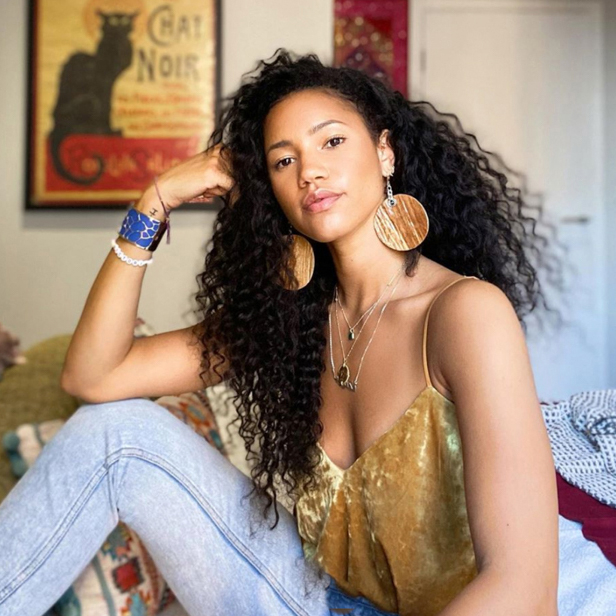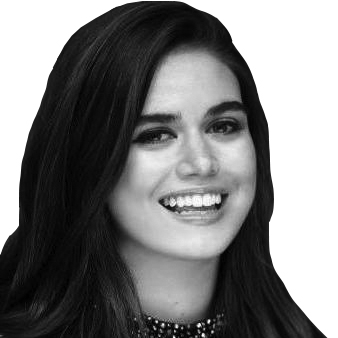Born Victoria Nwayawu Nwosu-Hope, the abbreviated Vick Hope, which she prefers, perfectly captures the British TV-and-radio presenter’s positive and effusive disposition.
Raised in Newcastle, Hope grew up in a part of the country that is home base for Geordie Shore—the U.K.’s answer to Jersey Shore—summed up by The Guardian as “one long advert for drinking.” The daughter of a Nigerian mother and a Geordie father, Hope has spoken in interviews of the bigotry and discrimination they faced as a mixed-race family in the northeast of England at that time. Such was the atmosphere of her upbringing that when she first hinted at applying to Cambridge University, her parents responded with a concerned, “I’m not sure it’s really for you,” Hope says. “They didn’t want me to feel disappointed at not getting in, or out of place when I got there.”


